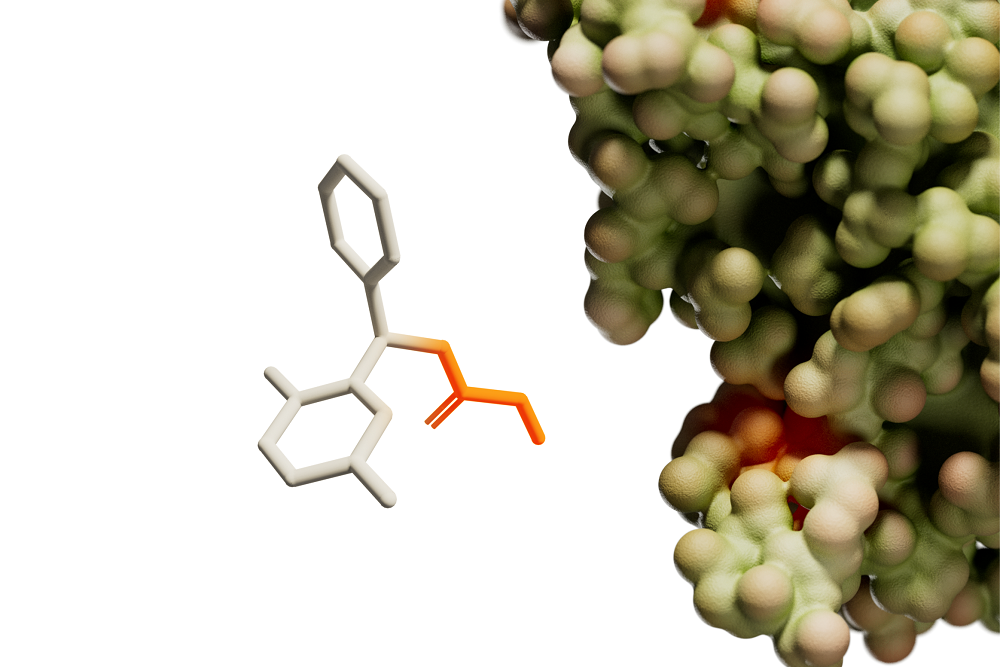
Thousands of proteins are known to cause disease, but while the biological activity of these proteins is understood, the way to hit and modulate them with a drug is not. Nature still has ways to bind molecules to these elusive proteins, said Molly Gibson, co-founder and CEO of startup Expedition Medicines. What scientists have lacked is the ability to decipher them.
Cambridge, Massachusetts-based Expedition uses artificial intelligence to study proteins and learn nature’s rules of chemistry, Gibson said. The young company, formed by startup creator Flagship Pioneering, has emerged from stealth to discover and develop novel small molecule drugs for elusive protein targets.
The binding of a molecule to a protein is a chemical reaction that forms a strong connection between them called a covalent bond. Proteins considered undruggable have smooth surfaces or shallow pockets that make it difficult for a potential drug to form that bond. The search for new drugs has historically come from screening a library of molecules against a set of targets to see what binds. That approach has challenges because the easy targets are already hit. So to make the search productive, drug hunters need larger libraries to get more hits.

As Healthcare and Biopharma Companies Embrace AI, Insurance Underwriters See Risks and Opportunities
In an interview, Munich Re Specialty Senior Vice President Jim Craig talked about the risk that accompanies innovation and the important role that insurers play.
The data Expedition analyzes are proprietary. Expedition’s research is driven by a chemoproteomics platform technology that analyzes the interactions between proteins and small molecules. The technology takes small molecules from the startup’s proprietary library and screens them against more than 20,000 sites across the human proteome, generating data about the small molecule and specific amino acids on the protein. From there, Expedition uses generative AI and quantum chemistry to learn the rules of chemistry — how chemical bonds form on the surface of proteins. This approach enables Expedition to identify molecules that can bind to proteins with shallow pockets or smooth surfaces.
“By learning from nature, we’ve been able to identify that across the proteome, across the surface of proteins, there are all these latent catalytic sites that if viewed from a new direction, a new perspective, a new view on chemistry, we can form a reaction and form a chemical bond between a small molecular protein and bind in these areas that would have otherwise been impossible,” Gibson said.
The analysis by expedition’s technology yields a readout, a quantitative score of target engagement between the small molecule and a specific amino acid on the protein, Gibson said. That score directly correlates to the formation of the chemical bond. Because those data are aligned with generative AI and quantum chemistry, Expedition’s scientists believe the company will be able to apply these new ways of looking at small molecules and proteins for targets that haven’t been addressed before, she said.
Expedition was founded three years ago. Flagship has formed other startups that use technology to analyze proteins. ProFound Therapeutics emerged in 2022 with technology that searches for new drugs by exploring previously undiscovered proteins beyond the 20,000 proteins identified by the Human Genome Project. Prologue Medicines launched last year to explore the viral proteome. Gibson said Expedition is different in that it is not analyzing the proteome to discover new biology. What the startup is trying to do is address targets where the biology is already known, but the chemistry for binding these targets is not. Expedition’s team includes two of the founders of Vividion Therapeutics, a startup whose a proteome analysis platform technology discovered small molecules that can bind to elusive targets. In 2021, Bayer acquired Vividion for $1.5 billion up front.
There are other startups developing drugs intended to form covalent bonds to elusive drug targets. Nexo Therapeutics launched in 2023 with two technology platforms focused on developed novel small molecule cancer drugs. Terremoto Biosciences has reached early clinical development with a small molecule inhibitor of a solid tumor target called AKT1. Enlaza Therapeutics launched last year with a platform for developing biologic drugs that form covalent bonds with elusive cancer targets.
Expedition is backed by the customary $50 million that Flagship provides to its companies at launch. With the startup now out of stealth, fundraising will continue, Gibson said. The specific targets for Expedition’s research remain undisclosed. Gibson said the drug modalities Expedition is developing span inhibitors, activators, and bifunctional degraders. The platform technology is indication agnostic, but Gibson said the preclinical pipeline currently focuses on immunology and oncology. Partnering could bring the startup to other therapeutic areas.
Expedition already has a partnership with Pfizer focused on prostate cancer. This alliance falls under an agreement Flagship began with the pharmaceutical giant in 2023. The deal gave Pfizer the opportunity to explore all of the platforms at Flagship and decide which ones fit its areas of interest. Gibson said Pfizer saw the Expedition platform offering the potential to solve challenges in difficult-to-drug targets, specifically in cancer. The partnership with Expedition is a multi-target deal funded by Pfizer.
“They brought the targets to us, they’re their targets,” Gibson said. “We’re generating the chemistry.”
Image by Expedition Medicines








